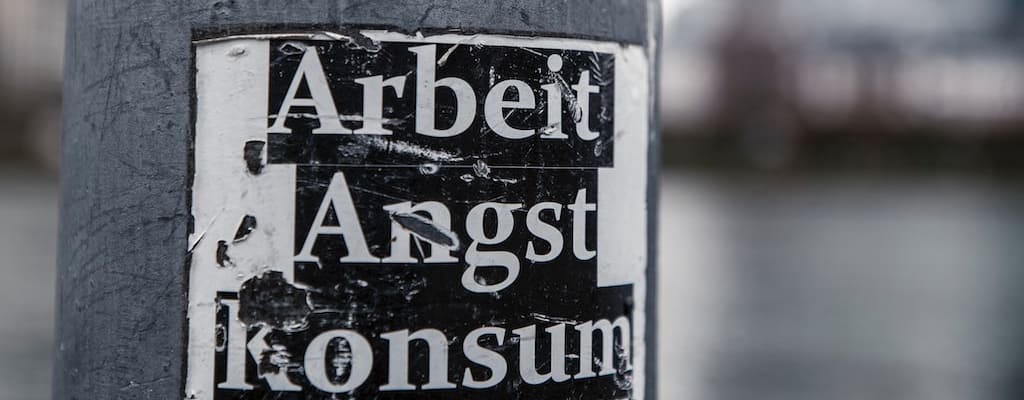quake in one’s boots: Idiom Meaning and Origin
What does ‘quake in one's boots’ mean?
The idiom "quake in one's boots" means to feel very afraid or scared. It is often used to describe a feeling of extreme fear or apprehension. The phrase originates from the physical reaction of trembling or shaking that one may experience when feeling scared or intimidated.

Idiom Explorer
The idiom "scare the pants off" means to frighten or startle someone very much, often resulting in them losing their courage or composure. The phrase suggests a sudden and intense fear that can make someone feel as if their pants are literally scared off.
The idiom "scare the life out of" means to frighten someone intensely or to cause extreme fear or anxiety. It is used to describe a situation where something or someone is so frightening that it feels as if their life is being drained out of them.
The idiom "scared to death" means to be extremely frightened or afraid to the point where it feels like one could die from fear.
The idiom "scared shitless" means to be extremely frightened or terrified to the point of losing control over bodily functions. It is an intensified version of simply feeling scared.
The idiom "scared green" means to be extremely frightened or terrified. The use of the color green in the phrase emphasizes the intensity of the fear. It is likely derived from the association of the color green with sickness or nausea. The phrase is often used to describe someone who is paralyzed with fear or experiencing extreme anxiety.
The idiom "run scared" means to feel fearful or panicked, usually because of a perceived threat or danger. It is often used to describe someone who is in a state of heightened anxiety and is acting out of fear.
The idiom "rub the fear of God into" means to strongly intimidate or instill a profound sense of fear or respect in someone.
The idiom "put the boot in" means to physically or metaphorically attack or criticize someone, especially when they are already down or vulnerable. It implies delivering additional blows or insults to worsen their situation.
The idiom "put one's pants on one leg at a time" means that someone is just an ordinary person, emphasizing equality and normalcy.
Uncovering the Origins
The idiom "quake in one's boots" is commonly used to describe the feeling of extreme fear or anxiety. It is often used when someone is faced with a daunting or intimidating situation. This expression conveys the idea that a person is so frightened that their legs are shaking as if in response to an earthquake. The term "quake" refers to the shaking or trembling caused by an earthquake, while "boots" symbolizes the person's footwear. This idiom highlights the physical and emotional response that occurs when an individual is confronted with a truly terrifying or overwhelming situation.
The phrase "quake in one's boots" made its first appearance in print in the mid-19th century, in Richard Vickerman Taylor's book "The Life of William Cobbett" (1833). However, it is believed to have been used orally before that. The metaphorical use of "quake" to describe a feeling of fear or apprehension is derived from the physical shaking caused by an earthquake, a natural disaster that evokes a sense of terror and helplessness. This idiom serves as a vivid and relatable expression that resonates with those who have experienced intense fear or anxiety.
Throughout the years, the idiom "quake in one's boots" has become a commonly used expression in informal speech and writing. It is employed in various contexts, ranging from personal anecdotes to literary works. This idiom is often used when an individual is confronted with a significant threat or challenge. It can be used, for example, to describe the feeling of facing a powerful opponent, speaking in public, or dealing with a difficult decision. By using this idiom, speakers and writers effectively convey the depth and impact of fear on a person's psyche and behavior.
Another related idiom is "jump in one's skin." This expression is used to describe the feeling of being startled or surprised. It conveys the idea of experiencing a sudden and often involuntary physical reaction, with the imagery of someone jumping or jolting in response to a surprise. While this idiom describes a different emotional state than "quake in one's boots," they both capture the intensity of the emotions involved. In certain situations, the fear or anxiety may be so strong that it causes a person to jump in their skin or quake in their boots.
Similarly, the idiom "bet one's boots" is also related to the expression "quake in one's boots." "Bet one's boots" is a phrase used to indicate a strong certainty or conviction in something. It suggests that someone is so confident in a particular outcome or belief that they are willing to wager something of value, such as their boots, on it. While the emotional states described by these idioms may differ, they share a common thread of emphasizing the intensity and significance of the situations they describe.
The idiom "quake in one's boots" serves as a reminder of the visceral and sometimes overwhelming nature of fear. It continues to be used to communicate the intensity of emotions in various contexts, allowing individuals to connect with the universal human experience of feeling afraid. Whether it's the fear that causes one to quake in their boots, the startle that makes them jump in their skin, or the conviction that leads them to bet their boots, these idioms vividly capture the range of emotions we encounter in the face of challenges and uncertainties.
Example usage
Examples of how the idiom quake in one's boots can be used in a sentence are:
1. When I saw the size of the roller coaster, I started to quake in my boots.
2. The thought of giving a presentation in front of a large audience made him quake in his boots.
3. She quaked in her boots when she heard a loud noise coming from the dark alley.
More "Fear" idioms



